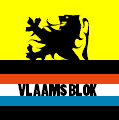Right-wing populism facts for kids
Right-wing populism is a way of thinking in politics that mixes ideas from conservatism, liberalism, and nationalism. It often involves leaders who say they speak for the "ordinary people" against a group they call "the elite." This "elite" might include politicians, experts, or the media.
Contents
What is Right-Wing Populism?
Right-wing populism is a political style where leaders try to connect directly with what they see as the "common person." They often say that these ordinary people are being ignored or harmed by a powerful "elite." This elite can be seen as people in government, big businesses, or even international groups.
Key Ideas of Right-Wing Populism
Right-wing populism often focuses on a few main ideas:
- Nationalism: This means putting the interests of one's own country and its people first. It often involves strong pride in national identity and culture.
- Anti-Establishment: Leaders often criticize the traditional political system and those who run it. They might say that regular politicians are out of touch or corrupt.
- Traditional Values: There's often an emphasis on keeping traditional ways of life, family structures, and cultural norms.
- Immigration Control: Many right-wing populist movements want stricter rules about who can enter their country. They might argue this protects jobs or national culture.
Where Do We See Right-Wing Populism?
This political style has become more common in many parts of the world. Leaders and parties who are described as right-wing populist often gain support by promising to shake up the political system. They might talk about making their country strong again or protecting it from outside influences.
For example, some leaders have focused on issues like trade deals, saying they hurt local workers. Others have emphasized national borders and identity. These movements often use strong, direct language to appeal to voters who feel left behind by traditional politics.
Images for kids
-
Brazilian President Jair Bolsonaro with U.S. President Donald Trump in March 2019
-
Pauline Hanson, leader of One Nation
-
Hong Jun-pyo, former leader of LKP
-
Heinz-Christian Strache, former leader of the Freedom Party of Austria and Vice-Chancellor of Austria
-
Marine Le Pen, leader of the National Front and 2017 presidential candidate
-
Viktor Orbán (Fidesz-KDNP), the incumbent Prime Minister of Hungary
-
Silvio Berlusconi, leader of the liberal-conservative Forza Italia and former Prime Minister of Italy.
-
Geert Wilders, leader of the Party for Freedom
-
Poland's Law and Justice (PiS) leader Jarosław Kaczyński with Hungarian Prime Minister Viktor Orbán
-
Santiago Abascal, leader of VOX, during the party conference in October 2018.
-
Margaret Thatcher, leader of the centre-right Conservative Party and former Prime Minister of the United Kingdom.
See also
 In Spanish: Populismo de derecha para niños
In Spanish: Populismo de derecha para niños
 | James Van Der Zee |
 | Alma Thomas |
 | Ellis Wilson |
 | Margaret Taylor-Burroughs |














